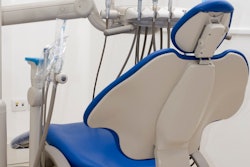
A Washington dental clinic has agreed to pay $45,000 to resolve an Americans with Disabilities Act violation for allegedly failing to provide interpretation services to a patient who is deaf, according to the U.S. Department of Justice.
Due to the lack of communication assistance, the woman unknowingly agreed to have seven teeth extracted, according to a press release dated October 18 from the U.S. Attorney's Office for the Western District of Washington.
In addition to compensating the woman for the discrimination she experienced, the Center for Endodontic Care, doing business as the Dental Specialty Clinic in Des Moines, has agreed to make multiple improvements to ensure appropriate interpreter services are available to patients who are deaf or hard of hearing, according to the release.
"Effective communication with patients is critical in medical and dental appointments, and auxiliary aids and services are required by law for patients who need them," U.S. Attorney Nick Brown said in the release.
After the patient's routine dentist told her she needed her third molars and possibly another tooth extracted, as well as a root canal due to her pain, she scheduled emergency dental treatment with the Dental Specialty Clinic in June 2020, according to the release.
The patient was informed that a sign language interpreter would likely not be available. The woman understood that she would be contacted if no interpreter was available. However, the clinic reportedly did not contact her.
When she arrived for treatment, there was no interpreter. The woman was unaware that she agreed to the removal of seven teeth. This caused her significant physical pain and emotional distress, according to the release.
In addition to compensation, the clinic will institute new procedures, including using an effective communication intake form with each patient and keeping that information in each patient file. Additionally, the clinic will contract with a qualified interpreter services provider to ensure that there are sign language interpretation services either in person or by video during operating hours, according to the settlement agreement.
Furthermore, the clinic agrees not to use a family member for interpretation services unless it is an emergency of imminent threat to safety or is requested by a patient. Also, the clinic will post notices about its interpretation services at the practice and on its website, according to the release.
Finally, the clinic agreed to provide training to its employees about the new procedures, record-keeping, and ways to access the interpretation services. For three years, the clinic will provide reports and records, as well as copies of complaints, to the U.S. Attorney's Office to ensure compliance with the agreement.



















